China's peaceful rise has to start in Hong Kong
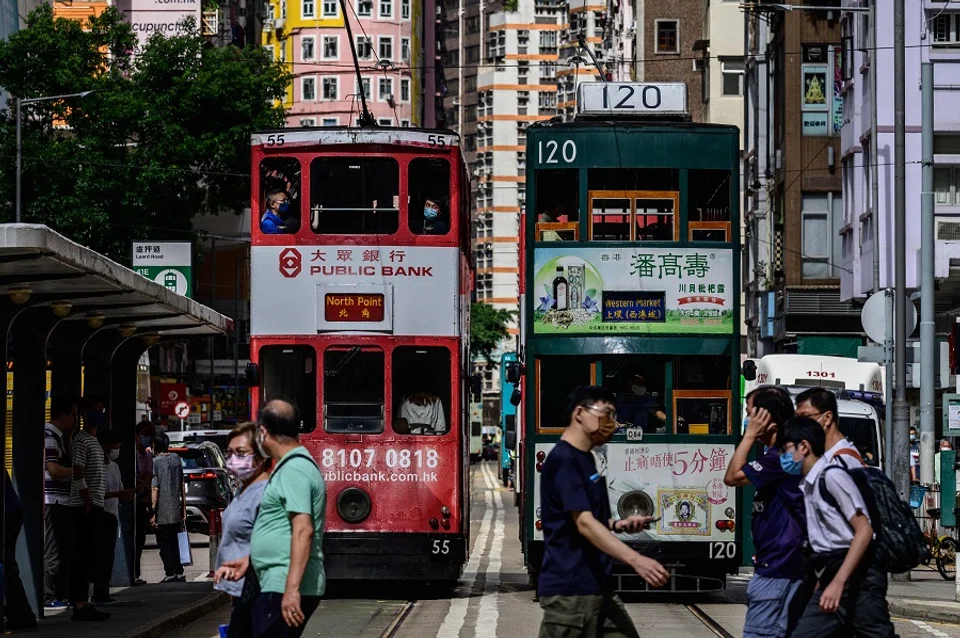
The current surgery-like political reform being performed on Hong Kong is both unfortunate and inevitable. It is unfortunate because it messes up the original design of "one country, two systems", making Hong Kong a battlefront of the emerging new Cold War. It is inevitable because no government in the world would have tolerated more than a year of continued violent demonstrations in which the whole city became a guerrilla battlefield and agitations were only disrupted because of the coronavirus pandemic. Neither would a government stand for its territory being used for long by external forces as a base for intelligence-gathering and subversion, or degenerating into a sordid haven for corrupt officials, powerful individuals and shady businessmen. Moreover, public opinion in Hong Kong had come to a point where there was a knee-jerk opposition to all things CCP (Chinese Communist Party). That too is unsustainable for any polity. We might say that the CCP was backed into a corner to act.
What the CCP faces in Hong Kong mirrors the situation the party has to deal with in the world at large.
The true significance of unrest in Hong Kong
As it reshapes Hong Kong's governance model, the CCP ought to recognise that the unrest in Hong Kong represents a conflict between two systems, two sets of values and two ways of life. Its significance goes far beyond the SAR itself. Hong Kong had long been hailed as the freest entrepot in the world. That it is profoundly influenced by the liberalist ideology in its values is unsurprising.
What the CCP faces in Hong Kong mirrors the situation the party has to deal with in the world at large. The difference is that the CCP does not have control over other parts of the world the way it does over Hong Kong. It is a great challenge to wield such control carefully and properly. This is because tackling the Hong Kong issue well will have a great bearing on the party's relationship with the world at large (especially with the West). The matter should not be handled as if it is just another internal affair.
Internationally, the CCP is trying very hard to avert a new Cold War. Its predicament is that it has been negatively defined in mainstream international discourse - for all the same reasons it has been vilified by Hong Kong's violent protesters. Under the shadow of an "evil regime", whatever good things the party has done are disregarded, its faults are exaggerated infinitely, and its accomplishments are interpreted as threats.
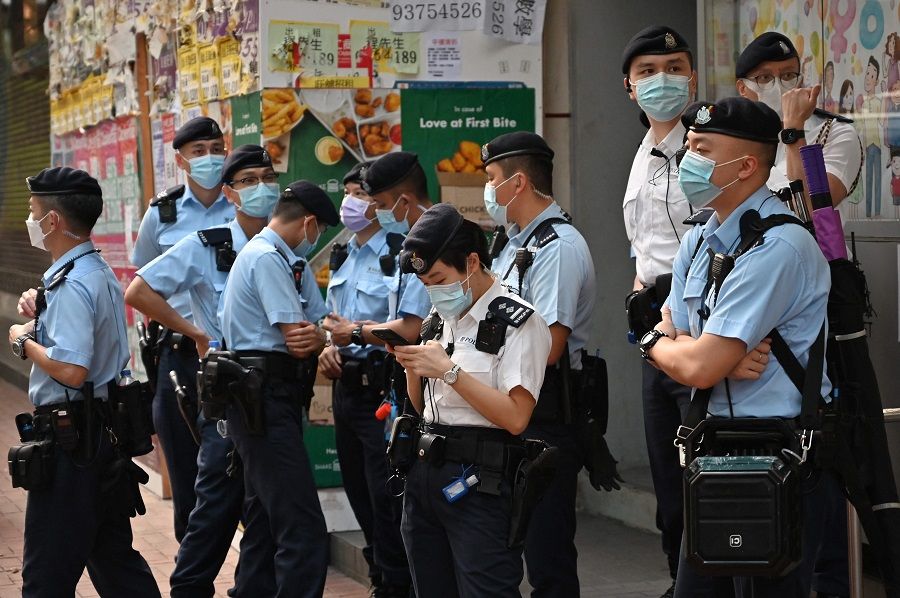
The problem is not merely about being censured by Western countries. Liberalism has an extensive spread across the world. Elites of the Third World countries receive Western education predominantly, such that liberalist values have been internalised to various degrees, so it is only inevitable that China is on the back foot in terms of international opinion. This is evident even in the public opinion of the countries just around China.
This indicates that while China has risen, it has yet to secure widespread approval - a fact that is most prominently highlighted in Hong Kong. The message conveyed by the violence of Hong Kong's protest movement is one of obstinate disapproval. The extremists would rather fight to the bitter end and sink the whole ship along with themselves. Following the period of unrest in Hong Kong, the same stance of disapproval has grown more vigorous and thorough in Taiwan, such that even the Kuomintang has to go along with the trend. Such obstinate opposition on the very doorstep of China amongst people who share the same culture and ethnicity very much warrants deep reflection and examination. To blame everything on "enemy forces at work" is a form of evading the issue.
The CCP's well-founded confidence and blind spots
The "evils" of the CCP enumerated by its critics, well-intentioned or otherwise, run the whole gamut long reported by Western mainstream media: violations of human rights, the suppression of speech and thought, imprisonment of dissidents, incarceration of rights lawyers, the establishment of "re-education camps", the freezing of bank accounts of dissidents and putting pressure on them by coercing their families and friends, and so on.
These incidents, to the extent that they do exist in China, only have a marginal impact on the lives of ordinary people. And yet, being magnified by Western mainstream media, they loom much larger than China's tremendous achievements and all-round improvements. They become the basis for defining the CCP in its entirety. Given the discursive hegemony of liberalism, such negative characterisation is readily accepted by the world at large.
... they [the Chinese] see how these countries are plagued by domestic racial discrimination, a growing disparity between the rich and the poor, money politics, corruption, poor public security, large numbers of homeless vagrants, drug trafficking, prostitution, violence...
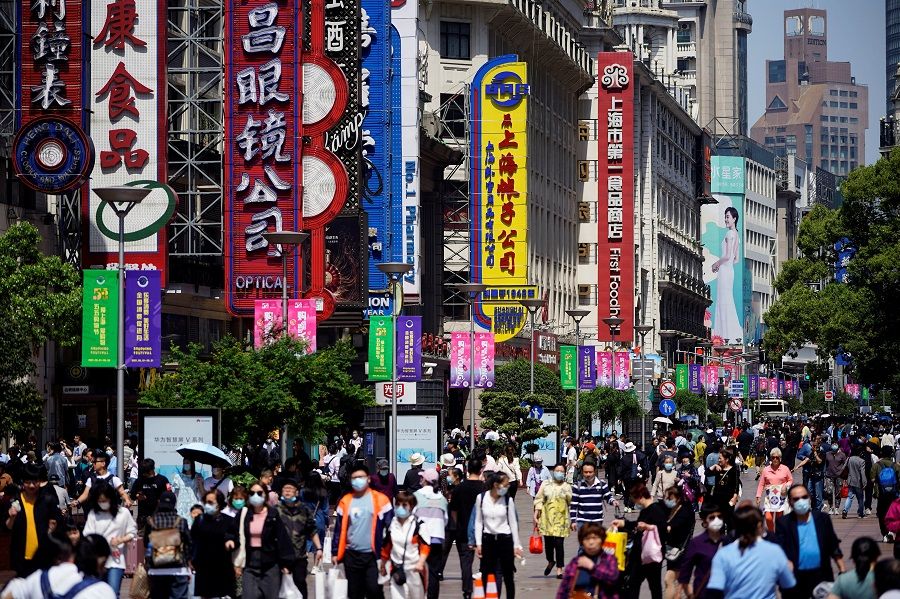
The truth is that generally speaking, China under the CCP's rule is blessed with social stability and economic prosperity. The mainland population of 1.4 billion live and work largely in contentment. They give a thumbs up to the ruling party for the most part. The Chinese government enjoys a higher approval rating than its counterparts in most democratic countries. China is thus far from the terrible concentration camp pictured by some of the mainstream media. Many foreigners are more than willing to live in China for the long term, and they enjoy their lives there very much.
The Chinese system provides them - and the Chinese people themselves - with enough freedom and an abundance of public goods. These include strong public security, convenience of transport, advanced communications and financial services, as well as a rich cultural life made possible by great diversity across the country's geographical expanse. While it is true that the CCP has made many mistakes and taken many detours in the past, the party has also produced truly remarkable results. For that reason, the Chinese people do not accept the externally bestowed label of "evil regime".
Instead, many of them believe that the US and many Western countries are more deserving of such a label. That is because they see how these countries are plagued by domestic racial discrimination, a growing disparity between the rich and the poor, money politics, corruption, poor public security, large numbers of homeless vagrants, drug trafficking, prostitution, violence, human trafficking, the almost daily occurrences of shooting incidents, threats of terrorist attacks - the list goes on.
Nevertheless, the liberalist discourse does not recognise these problems as manifestations of systemic original sin, so to speak. These evils, actually more destructive for national development and the general quality of life than those tagged on China, are thus overlooked and allowed to run rampant, leading to a governance crisis. The Chinese system and way of governance are highly effective against all such maladies, yet this very fact is left out in the liberalist discourse that accentuates the costs instead. As a result, the strengths of the Chinese model are ignored, even while Western democratic politics is lapsing into an endless crisis with no solutions in sight.
The sharp contrast in the effectiveness of governance gives the CCP ample ammunition to stand up for itself and strike back. Its efforts to seize the discourse initiative are derided, however, as "wolf-warrior diplomacy". Such a response betrays a condescending arrogance, double standards and increasingly untenable sense of superiority long taken for granted in the West. Having said that, the CCP's counter-attack is not unproblematic. Its effectiveness is dampened by certain blind spots.
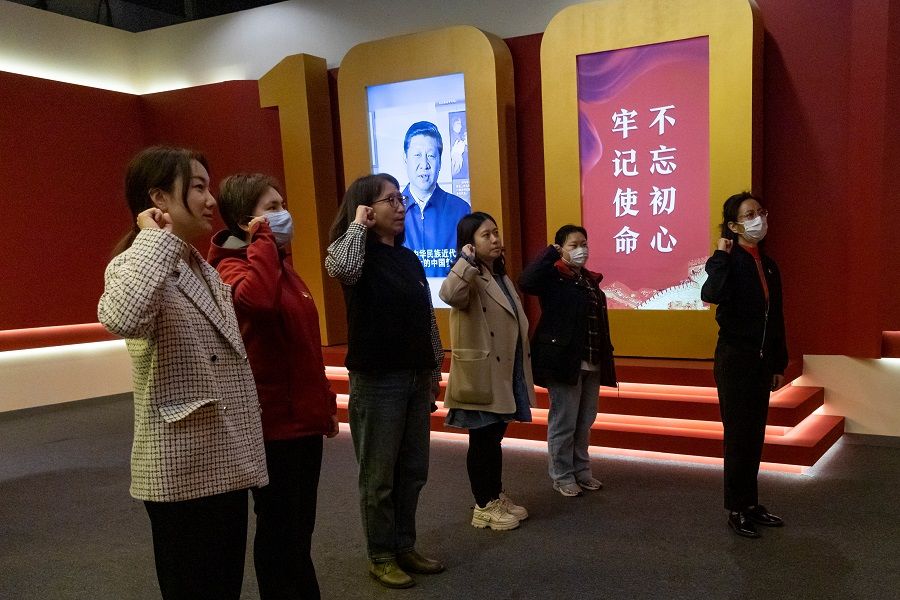
First of all, while complete Westernisation is a dead end, a face-off on all fronts is also the wrong way to go. After all, it is not for no reason that liberalism prevails in much of the world. The ideology is inseparably linked to modernisation and modernity. A progressive force in the historical megatrends, it still offers much China can learn from even today. The decline of a major power begins once it becomes full of itself, thinks that it is always right, and ceases to learn. That is a primary lesson taught by the history of early modern China.
The allure of liberalism lies in the fact that its protective stance towards human rights and liberty agrees profoundly with the demands of the human individual. Because of this, it is well-received by many, regardless of nationality, ethnicity, religion, culture and class. To go against universal values is to go against humanity. Doing so will not only hinder China's progress, but also cause the country to make enemies everywhere and easily attract the label of "evil".
Secondly, while liberalism is a flawed system that is not above criticism, the lack of theoretical innovation causes the CCP to be led by its own criticism of liberalism to undesirable places by giving free rein to radicals on the left, such that the party seems to regress to the level of the Cultural Revolution period. For example, when people invoke old ideas like the "dictatorship of the proletariat", "class struggle" and the "abolishment of private ownership", intentionally or otherwise, they feel justified to violate human rights and ruin the rule of law, which certainly is no way to win worldwide approval. Another case in point is the personality cult. Career "ladder climbers" in the CCP officialdom indulge in it, but for modern civilised people, it is something that leaves a bad taste in the mouth. Its prevalence in the officialdom would be a sign of bureaucratic decadence. And if it spreads across society, it would be a prelude to the rise of a fascist state.
The difficulties in liberal democracies now give China a golden opportunity to change liberalism's fixation with the government being a "necessary evil".
Thirdly, the saying that "the first three decades of the CCP's rule and the three decades that followed do not negate but inform each other", is a realistic assessment. However, since there is no earnest, in-depth assessment of the experience and lessons of the Cultural Revolution, the proposition tends to cloud the right and the wrong, which in turn enables certain political forces to push for a gross retrogression under the banner of "staying true to the party's original aspirations". China in the Maoist era was in almost total isolation from the world. To go back to those times would certainly not endear China to the world. It would only add grist to the notion of the "China threat".
Worldwide approval and a peaceful rise
The difficulties in liberal democracies now give China a golden opportunity to change liberalism's fixation with the government being a "necessary evil". China can position itself as an exemplar to showcase the constructiveness a government is capable of in many aspects. (Think, among other things, the country's accomplishments in infrastructure-building and dealing with the ongoing pandemic.) It is in a position to point out an inherent paradox in the West - i.e., that while everyone reviles and restricts the government, rendering it incapable of doing many things, they increasingly rely on the government for solving an ever-expanding list of problems.
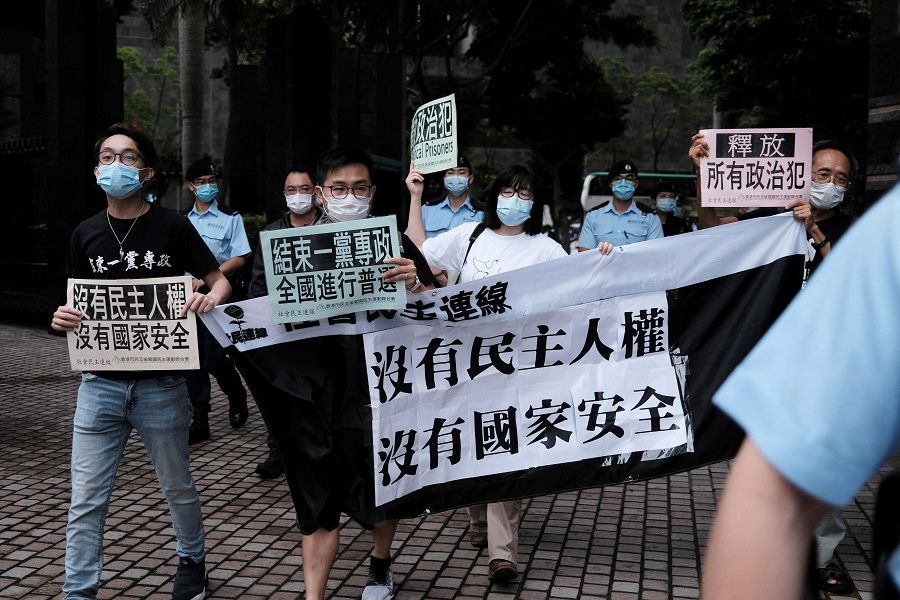
Political thinking in the West is focused on preventing the government and politicians from doing bad things. All its systemic set-ups - such as the separation of powers, the checks and balances, the rule of law, electoral democracy and so on - revolve around this very purpose. In Chinese culture, however, the government having the ability to do good things for the people is deemed more crucial. Such competence is evidently gaining importance in the rapidly changing and globalising world, and the West will have to recognise that sooner or later. Altering the way they view the government's role will change their disgust for and fear of the Chinese "big government" system and policies, such that they may more easily approve of what China does.
Thus far, China has focused on setting a good example to the world. However, for a major power that hopes for a peaceful rise, the more important thing is really to gain worldwide approval as much as possible. Setting a good example only requires China to focus on minding its own affairs well, whereas garnering the approval of the world is more difficult and requires more - China would have to work its way into a better integration with the world. Why is the CCP being attacked on all sides over the issue of Xinjiang's "re-education camps"? Precisely because it has concentrated on the former but neglected the latter approach. Whether China is able to have a strong voice is determined to a large extent by whether it is able to combine the best of the Chinese and Western systems, compensate for the shortcomings of both, establish a new system that is more effective, and not insist on going against the mainstream with its "Chinese characteristics".
By handling its relations with Hong Kong well, it would gain the experience and ability to properly handle its relations with the "free world", so that China would no longer be seen as an "other" and a threat.
The CCP's opportunity in Hong Kong
How Hong Kongers feel about communist China is at one with the sentiments of the people around the world who have been influenced by liberalism. Their prejudices against and misunderstandings of the mainland are also comparable. For this reason, the current upheaval in Hong Kong is an opportunity like no other for mainland China. The governance reboot in the shaken SAR provides the CCP with an opening and a testing ground for exploring and gaining international acceptance. By handling its relations with Hong Kong well, it would gain the experience and ability to properly handle its relations with the "free world", so that China would no longer be seen as an "other" and a threat.
The culture of reflexive opposition to all things CCP exists not only in Hong Kong, but also in Taiwan and elsewhere in the world; with it come the people who are resolutely, incessantly and unconditionally anti-communist and anti-China. That notwithstanding, China's main focus should be the common folk who just want to have a better life. It is the shift in the opinions and attitudes of the masses that counts as fundamental change. The political reform on hand affords an opportunity for the central government to serve the populace of the SAR more directly. To serve them well, the special characteristics of the liberalist port that is Hong Kong cannot be ignored. If the CCP manages to foster a happy relationship with Hong Kong, it will be able to do the same with the wider world.
Related: Overhaul of Hong Kong's electoral system: Is it still 'one country, two systems'? | Hong Kong's electoral reform: Powerful businessmen to lose influence in politics? | When 'new Hong Kongers' run the show, where do the old ones go? | Eight months after national security law: What's become of Hong Kong?
